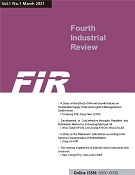- 권한신청
- E-ISSN2765-7213
- KCI Candidate
2권 2호
초록
Abstract
Purpose - The purpose is to present an efficient library-use education model in the form of flip learning, reflecting traditional teaching methods and gamification elements even in such non-face-to-face and face-to-face situations after COVID-19. Research design, data, and methodology - Research on library use education, research on ubiquitous environment and gamification instructional design, flip the learning, and gamification elements are classified, compared, and analyzed to present educational models for library education, COVID-19 Pandemic situation, and subsequent library use education. Result - We propose an e-learning content development strategy for flipped learning-based library education. First, benchmark and use the existing educational contents. Second, a user-friendly interface is configured so that learners can flexibly organize their learning contents. Third, it allows learners to experience it directly or indirectly in a virtual space. Conclusion - If the e-learning environment can be standardized to the level of schools or educational institutions, a good educational model that can be used not only in library user education but also in other fields will be possible.
초록
Abstract
Purpose - The ability to meet the high demand for education in Nigeria is lacking, making the region remain backwards in education. Given this reason, the study investigates the role of innovation capability in the relationship between intellectual capital and competitive advantage in tertiary institutions in Nigeria. Research design, data, and methodology - The study is cross-sectional research, a total of 427 questionnaires were administered to respondents. The study distributed its questionnaire across 12 faculties at the University of Ibadan using a random sampling technique. Data were analyzed using ADANCO 2.1.1. Result - The study reveals that human capital, structural capital, relational capital, and innovation capability positively affect competitive advantage. Innovation capability mediates the relationship between human capital and relational capital. However, structural capital was not mediated by innovation capability. Conclusion - The study concludes that intellectual capitals and innovation capability are crucial to maintaining a competitive advantage over their peers. Achieving more significant success in the variables mentioned earlier will help Nigeria's tertiary institutions compete locally and internationally.
초록
Abstract
Purpose - The purposes of this research are: (1) Building and testing a research model that integrates Theory of Reasoned Action (TRA) with fear, perceived risk, and health protocols; (2) Examining the impact of compliance with health protocols on consumer behavior when offline shopping. Research design, data, and methodology - The data collection uses the self-administered survey method, and the questionnaire is distributed online. A total of 504 Indonesian population aged 18 years old or more participate in this research. Data are analyzed using factor analysis, multiple regression, and multiple regression with interaction. Result - This study reveals several findings: (1) Attitude and subjective norm have a significant effect on offline shopping behavior; (2) fear has a direct and indirect effect on offline shopping behavior; (3) the effect of perceived risk on the intensity of offline shopping is determined by compliance with health protocols. Conclusion - This paper discusses the direct influence of attitudes and subjective norms on behavior. This research also integrates fear, perceived risk, and health protocol factors in TRA, which may not have been done much, especially in the COVID-19 pandemic context.
초록
Abstract
Purpose - This study analyzes the investment environment of South Korea by using the rating scale of Robert B Stobaugh, Jr, and draws conclusion implication. Research design, data, and methodology - The study conducted a survey on according to the political stability, capital repatriation, foreign ownership allowed, discrimination and controls, foreign vs domestic businesses, currency stability, willingness to grant tariff protection, availability of local capital, and annual inflation for last 5 years. The score of these eight aspects will be given based on the current situation in South Korea and the sum of the scores will be calculated. Result - China-Korea economic and trade relations are in a stage of transformation and upgrading, and the level of economic and trade cooperation in various fields is reaching a new level. It is hoped that Chinese enterprises will grasp business opportunities, strengthen research and analysis of the Korea market and achieve mutually beneficial cooperation. Conclusion - The investment environment of South Korea is superior according to the political stability, capital repatriation, foreign ownership allowed, discrimination and controls, foreign vs domestic businesses, currency stability, willingness to grant tariff protection, availability of local capital, and annual inflation for last 5 years.
초록
Abstract
Purpose - The purpose of this study is to investigate the role of Teamwork on Engagement among employees of private primary and secondary schools in Plateau State, Nigeria using the dimensions of Teamwork, which are Communication, Leadership, Team Structure, Situation Monitoring, and Mutual Support on Employee Engagement. Research design, data, and methodology - To analyze the relationship among the variables, the study adopted the descriptive and explanatory research design, and a cross-sectional survey method using a survey questionnaire containing 29 items, with a 5-point Likert scale. The samples of 274 employees (both academic and non-academic) were selected using a simple random probability sampling technique. Multiple Regression was used to analyze data with the aid of the statistical package for social sciences (SPSS version 23.0). Result - This shows that Communication, Leadership, and Situation Monitoring have a positive and significant relationship on Employee Engagement, while Team Structure and Mutual Support show a negative direction but still maintained a significant relationship. Conclusion - The management of private primary and secondary schools should pay attention to Communication, Leadership, Team Structure, Situation Monitoring, and Mutual Support among their employees to promote Employee Engagement in the workplace. It also recommends that future studies should be carried out in other sectors.














